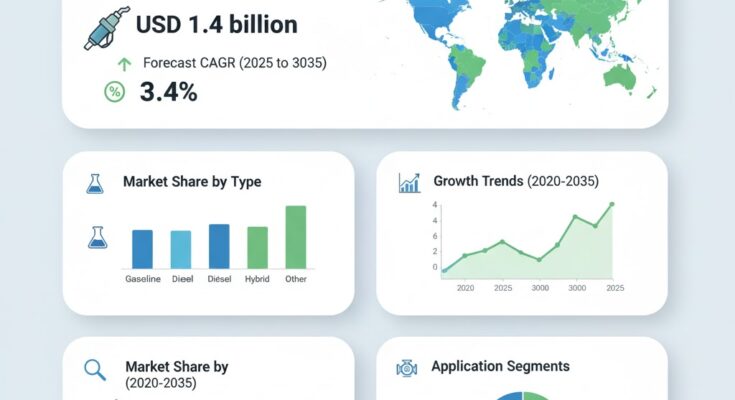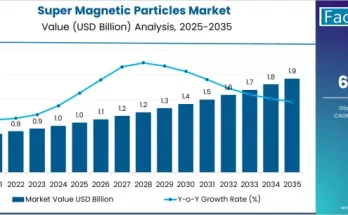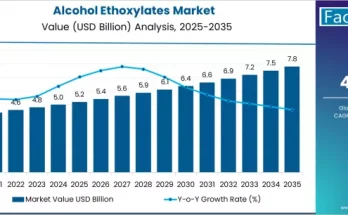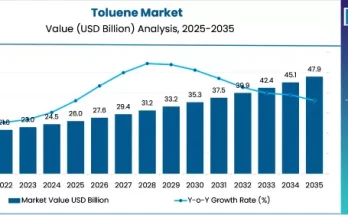The global fuel injector cleaner market is on a progressive growth trajectory, fueled by rising automotive maintenance awareness, advancements in fuel system technologies, and increasing consumer focus on fuel efficiency. According to a recent report by Fact.MR, the market is valued at USD 1.0 billion in 2025 and is projected to reach USD 1.4 billion by 2035, recording an absolute increase of USD 410.0 million and expanding at a CAGR of 3.4% during the forecast period.
As the global automotive industry transitions toward cleaner, more efficient powertrains, fuel injector cleaners have become critical in maintaining optimal engine performance, reducing emissions, and prolonging vehicle lifespans.
Strategic Market Drivers
- Increasing Demand for Fuel Efficiency and Engine Performance
Modern vehicles rely heavily on precise fuel delivery systems. Over time, fuel injectors can accumulate carbon deposits that affect spray patterns and combustion efficiency. The growing consumer emphasis on better fuel economy, smooth acceleration, and lower maintenance costs is propelling the adoption of high-quality fuel injector cleaners across both personal and commercial vehicle segments.
In addition, automakers and service centers are endorsing periodic injector cleaning as part of preventive maintenance schedules to ensure compliance with stringent emission standards.
- Expanding Automotive Aftermarket and Maintenance Culture
The expanding global automotive aftermarket—driven by an increasing number of vehicles in operation and longer vehicle lifespans—is a key growth catalyst. DIY car enthusiasts and professional mechanics alike are contributing to higher product sales, as injector cleaners are affordable, easy-to-use, and deliver immediate performance benefits.
Furthermore, growing availability through e-commerce channels and automotive retail stores is making these products more accessible to end users.
- Rising Demand from Commercial and Fleet Operators
Fleet operators are increasingly investing in preventive maintenance solutions to minimize downtime and operational costs. Fuel injector cleaners help maintain consistent engine performance and extend service intervals, which is especially critical for logistics, transportation, and agricultural vehicles that operate under demanding conditions.
The trend toward fuel optimization in commercial fleets—coupled with growing awareness of carbon footprint reduction—is expected to sustain market momentum through 2035.
Regional Growth Highlights
North America: Dominant Market Led by Strong Automotive Culture
North America remains a leading market for fuel injector cleaners, driven by a robust car ownership rate, a mature automotive aftermarket, and widespread adoption of performance enhancement products. The U.S. market, in particular, benefits from a high concentration of professional workshops and retail outlets promoting regular injector maintenance.
Europe: Focus on Emission Control and Engine Longevity
Europe’s stringent emission regulations and growing consumer awareness of environmental performance are stimulating demand for premium-grade fuel system cleaners. Countries such as Germany, the U.K., and France are witnessing steady growth, with leading automotive service brands incorporating injector cleaning as part of comprehensive vehicle care programs.
Asia Pacific: Fastest-Growing Market with Expanding Vehicle Parc
Asia Pacific is emerging as the fastest-growing regional market, supported by rising vehicle production, expanding middle-class ownership, and growing awareness of fuel maintenance solutions. Rapidly urbanizing economies such as China, India, and Indonesia are seeing increased adoption of injector cleaners as consumers prioritize efficiency and reliability in everyday transportation.
Latin America and Middle East & Africa: Emerging Opportunities
In emerging regions, growing adoption of light commercial vehicles and increasing fuel quality concerns are opening new avenues for injector cleaner manufacturers. Government initiatives promoting cleaner fuel technologies are also encouraging greater use of maintenance additives to improve combustion efficiency.
Market Segmentation Insights
By Type
- Polyetheramine (PEA)-based Cleaners – Recognized for superior deposit removal and injector performance.
- Polyisobutylene (PIB) Cleaners – Widely used in regular maintenance due to cost-effectiveness.
- Polyisobutylene Amine (PIBA) Cleaners – Preferred for long-term engine protection and smoother operation.
By Vehicle Type
- Passenger Cars – Dominates the market, with growing demand for DIY maintenance products.
- Commercial Vehicles – Increasing use to improve mileage and lower maintenance costs.
- Motorcycles and Small Engines – Emerging niche application area driven by consumer awareness.
By Sales Channel
- Automotive Retail Stores
- Service Centers and Workshops
- Online/E-commerce Platforms
Challenges and Market Considerations
Despite positive growth prospects, the market faces several headwinds:
- Fuel Quality Variations: Differences in fuel composition across regions affect cleaner efficacy and usage frequency.
- Low Awareness in Developing Markets: Limited consumer education on injector maintenance hampers adoption in certain areas.
- Regulatory Compliance: Growing environmental scrutiny is prompting reformulation of chemical additives to ensure eco-safety.
Competitive Landscape
The global fuel injector cleaner market is highly competitive, with leading players focusing on performance innovation, eco-friendly formulations, and expanding distribution networks.
Key Players in the Fuel Injector Cleaner Market
- Chevron Corporation
- STP (Slick 50)
- Liqui Moly GmbH
- Gumout (ITW Global Brands)
- Lucas Oil Products Inc.
- Red Line Synthetic Oil Corporation
- BG Products Inc.
- Wynn’s (Schaeffler Group)
- Bardahl Manufacturing Corporation
- Royal Purple (Calumet Specialty Products Partners)
These companies are investing in advanced chemical technologies that deliver superior cleaning action while ensuring compatibility with modern engine materials and emission systems.
Future Outlook: Cleaner Engines, Smarter Solutions
The decade ahead will mark a shift toward sustainable, smart fuel system maintenance solutions. With increasing integration of diagnostics and AI-based monitoring in vehicles, predictive maintenance tools are expected to complement traditional fuel injector cleaners.
Manufacturers are likely to introduce bio-based and low-emission additive formulations to align with evolving green mobility goals. As global vehicle ownership continues to rise, the fuel injector cleaner market is set to maintain steady expansion—powering engines toward greater efficiency, longevity, and environmental responsibility.



